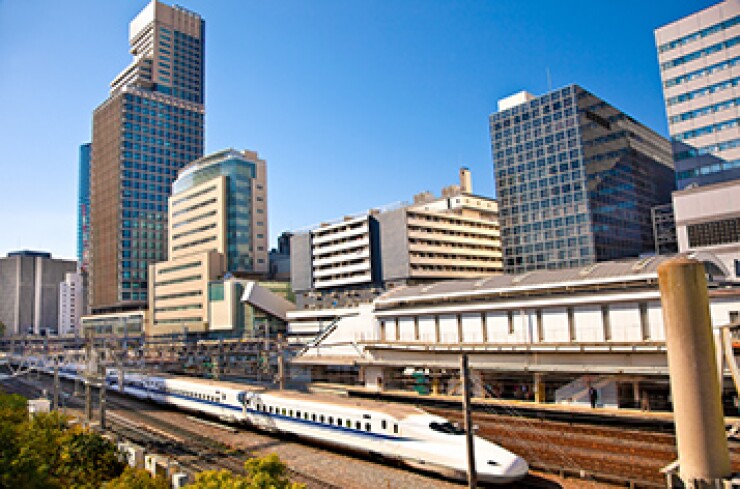
DALLAS – Developers of a proposed $12 billion high-speed rail link between Dallas and Houston have asked federal regulators to affirm their jurisdiction over the 240-mile project.
Texas Central Rail said on Wednesday that it has filed a formal petition with the federal Surface Transportation Board (STB) for oversight of the project. The company wants the federal agency to weigh in with it on critical next steps that will include construction and operation of the passenger line, which will have stations in the two cities and a midway stop in Grimes County.
The request does not seek to remove protections afforded to landowners along the route under Texas law, said Tim Keith, the chief executive officer of Texas Central.
Texas Central is required to seek STB certification of the project and comply with the federal regulatory process that all newly constructed rail lines must follow, he said.
Project sponsors filed the petition because they want the STB to clarify the procedures that Texas Central must follow to bring it in line with the nation's other major passenger and freight railroads, Keith said.
The STB will not issue a final decision until an environmental review of the route by the Federal Railroad Administration is completed later this year. But Texas Central asked the board to issue an interim order as soon as practicable.
This project will be the first true high-speed passenger rail system in the United States, Keith said. The bullet trains would cut the travel time between the two cities from the current four hours by car to 90 minutes.
Trains carrying up to 400 passengers would depart from both cities every 30 minutes at peak times, according to the company.
"With a ruling from the STB, we will gain a greater understanding of required regulatory commitments, and will more effectively be able to deliver the project," he said. "Since this project is privately developed, with a fixed schedule for beginning service, it is important to those efforts and to the project's private investors that all regulatory questions be settled."
Texas Central Railway will not need federal grants for construction or public subsidies for operation of the 240-mile line, he said.
The company has said it may seek low-interest federal loans through the Transportation Infrastructure Finance and Innovation Act. Texas Central will use trains and technology developed by Japanese rail operator JR Central.
Texas Central said it has raised $115 million in investments and secured another $130 million of design work from local engineering companies. The funding includes a $40 million loan from the Japan Overseas Infrastructure Investment Corp. for Transport and Urban Development.
Work on the project could begin in late 2017 if the environmental review is completed this year as expected, Keith said.
The project is on track to begin selling tickets in 2022, said Holly Reed, managing director of external affairs for Texas Central Partners.
A rapid rail link between Dallas and Fort Worth to ease highway congestion in the crowded metropolitan area is a possibility once the Dallas-Houston line is completed, said Bill Meadows, chairman of the Commission for High-Speed Rail in Dallas-Fort Worth.
"I think people recognize the importance of some alternatives as we begin to realize that our effort to continue to build roadway infrastructure is not going to meet the demands of Texas in 2030 or 2040," Meadows said.





